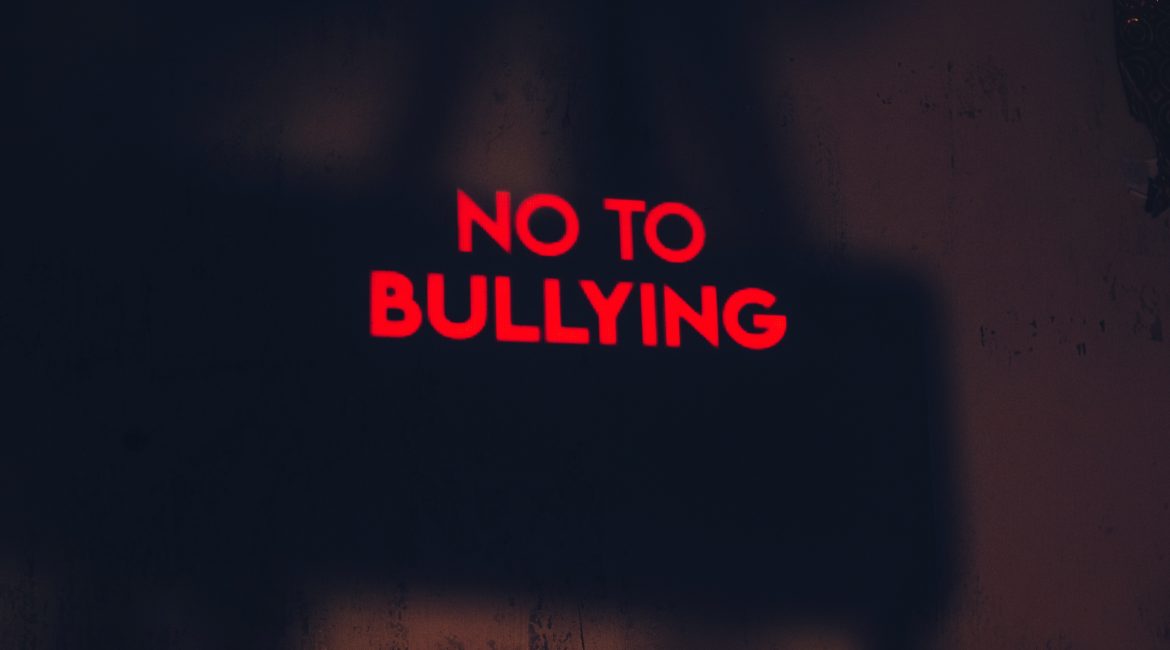This article was written by Evan Barber from Axis.
We all know the stereotypical bully. He is male, large, intimidating, and unintelligent, just like Moe from Calvin and Hobbes or Biff from Back to the Future. Bullies can indeed have these characteristics, but the truth is that there is no profile when it comes to bullying.
Roy Moore, Founder and Executive Director of Be Strong, a nonprofit dedicated to ending bullying, says, “Bullying does not respect boundaries.” Your kids might not have a propensity to bully or be bullied, but even if they are just bystanders, bullying still impacts them. It’s crucial for you to make bullying one of your regular and ongoing conversations with your kids so they know how to react to it when they either experience it or see it—or in case they’re the bullies.

Just because kids are rude or aggressive does not mean they’re bullying others. Roy Moore says that bullying must include the following:
- One or more parties harassing one or more parties
- A real or apparent imbalance of power
- An issue occurring over an extended period of time
We want to emphasize again that anyone can bully or be a target of bullying: “The power imbalance can come from a number of sources—popularity, strength, cognitive ability—and children who bully may have more than one of these characteristics.” That being said, there are people who tend to get bullied more often than others. About 80% of all bullying happens to people for the following reasons:
- body shape
- having a disability
- being a religious minority
- being a racial minority
- sexual orientation
- being in foster care or adopted
- being a first-generation immigrant

Only about a third of kids who are being bullied will actually ask an adult for help. It’s therefore crucial that you’re aware of the warning signs that your kids might be being bullied. These include:
- problems sleeping
- changes in eating habits
- loss of possessions
- injuries they can’t account for
- loss of interest in activities they enjoy
- decline in academics
- isolation or loss of friends
- lowered self-esteem
- self-destructive behaviors
If you find out that your kids are being bullied, it’s critical that you’re first and foremost empathetic and make sure your children know that you hear them. Moore says that one of the toughest things you’ll have to deal with as a parent is controlling your reaction when you hear your kids are being hurt. You will be tempted to go right into “protect” mode, become upset or angry, and swiftly mete out justice. But you must remain calm and gather all the facts—otherwise, you’ll shut your kids down. Make sure they know you don’t blame them for what’s happening. Kids are often afraid to share because they blame themselves.

It’s important to address bullying from a correct viewpoint of who God is and who people are as fallen beings made in His image. We must not react to aggression out of hate, anger, or vengeance—but we also do not have to submit to abuse. While Be Strong is a secular organization, it approaches the issue of bullying using the following Scripture-based principles:
- All people are fearfully and wonderfully made.
- Treat others better than you want to be treated (modified Golden Rule).
- Love your enemies.
If you don’t already, start to see bullying as a necessary topic to discuss with your kids. It’s just as essential to talk about as academics, partying, or relationships. Use any opportunity that gives you a natural way to bring the topic up, whether it’s a school assembly, something in the news, or a situation in a TV show.

Finding out your kid is involved in bullying in one way or another is a harsh reality, one you might be reluctant to address. But doing so will not only make a huge difference in the lives of the victims, but possibly also in the bully’s and the bystanders’ lives.
As parents, we have the privilege and responsibility of pointing our kids to Christ in everything and teaching them to be more like Him in every way. Help them see this as another way to pass on the love they’ve received from Christ to those around them.

Parent Guides to Social Media by Axis
It’s common for parents to feel lost in their teen’s world. They can sift through the social media slang, texting shorthand, and viral quotes, and still feel disconnected and confused. Axis Parent’s Guide to Social Media is a generational translator of a teen’s world, featuring easy-to-understand explanations, relevant descriptions, and life applications.
Enjoy answers to questions including:
- Why do teens like it?
- How did this become popular?
- What are the potential dangers?
- How do I talk to my teens about it?
This is your go-to guide for understanding your teen’s world and sparking a deep, ongoing faith conversation that matters.
Guides include:
- A Parent’s Guide to Teen FOMO
- A Parent’s Guide to Influencers
- A Parent’s Guide to Instagram
- A Parent’s Guide to TikTok
- A Parent’s Guide to YouTube






